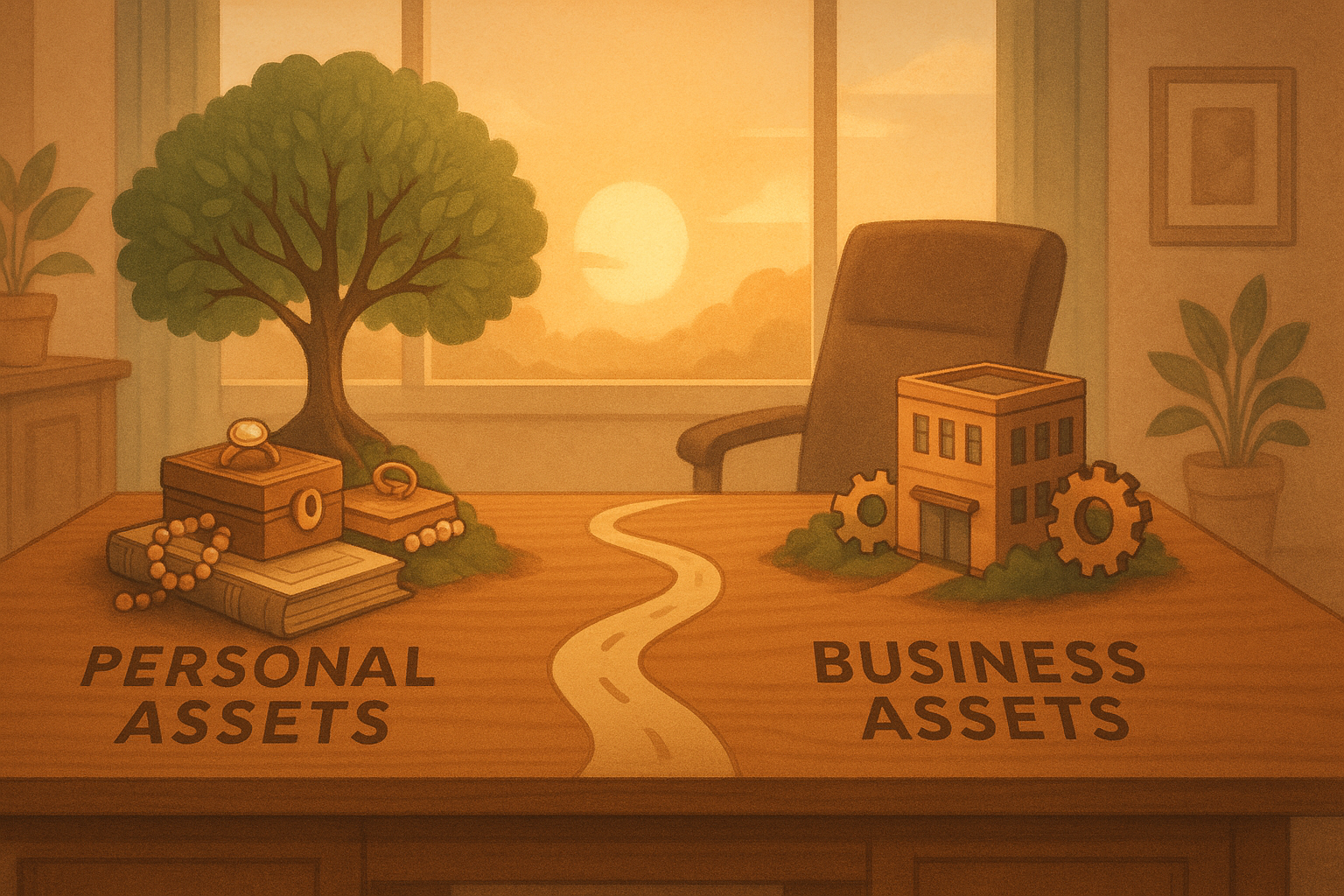
PARENTS & HOMEOWNERS: MY 7-STEP ESTATE PLANNING PROCESS WILL PROTECT YOUR HEIRS
From Creditors, Predators & Bad Choices, And Will Help You Become a (Bigger) Hero to Your Family!



Estate Planning for Entrepreneurs: Protecting Your Business Assets
Estate Planning for Entrepreneurs: Protecting Your Business Assets
In the fast-paced world of entrepreneurship, planning for the future is as crucial as managing day-to-day operations. Estate planning might not be the first thing on your mind, but ensuring your business assets are protected is vital for long-term success. In this post, we’ll explore how entrepreneurs can safeguard their business interests through effective estate planning.
Table of Contents
1. Understanding Estate Planning
2. Why Entrepreneurs Need Estate Planning
3. Key Components of Estate Planning for Businesses
4. Common Mistakes to Avoid
5. Frequently Asked Questions
Understanding Estate Planning
Estate planning involves organizing and managing your assets to ensure they are distributed according to your wishes after your passing. For entrepreneurs, this means not only considering personal assets but also business holdings. It’s about creating a roadmap that ensures your business can continue to thrive, even when you’re not around to lead it.

Why Entrepreneurs Need Estate Planning
Entrepreneurs pour their heart and soul into building their businesses. As such, it’s crucial to ensure that these efforts are not lost due to inadequate planning. Here’s why estate planning is essential:
1. Business Continuity: Without proper planning, a business can face disruptions that may threaten its survival. Estate planning offers a structured approach to ensure seamless transitions.
2. Minimizing Taxes: Strategic estate planning can help minimize taxes, maximizing the value passed on to beneficiaries. This is especially important for businesses, where taxes can significantly impact operations.
3. Avoiding Disputes: Clearly defined plans can prevent conflicts among heirs, ensuring that business operations remain smooth and relationships are preserved.
Key Components of Estate Planning for Businesses
Creating an estate plan that protects your business involves several essential components:
Business Succession Planning
One of the most critical elements is determining who will take over your business. Whether it’s a family member, business partner, or a designated successor, having a plan in place is vital. Consider creating a comprehensive succession plan that outlines roles, responsibilities, and timelines for transition.
Creating a Will and Trust
A will is a legal document that details how your assets should be distributed. For entrepreneurs, establishing a trust can offer additional control over business assets, ensuring they are managed according to your wishes.
Power of Attorney
Appointing a power of attorney for your business ensures that someone you trust can make decisions on your behalf if you become incapacitated. This can prevent business operations from stalling during challenging times.
Insurance Policies
Insurance can provide a financial safety net for your business. Consider life insurance to cover any debts or obligations, and review your business insurance policies to ensure they are up-to-date and sufficient.
Regular Review and Updates
Estate planning is not a one-time task. Regularly review and update your plan to reflect changes in business structure, assets, or personal circumstances. This proactive approach ensures that your plan remains relevant and effective.
Common Mistakes to Avoid
Even with the best intentions, entrepreneurs can make errors in estate planning. Here are some common mistakes to watch out for:
1. Procrastination: Delaying estate planning can lead to complications and missed opportunities. Start early to ensure a comprehensive plan is in place.
2. Ignoring Professional Advice: Estate planning can be complex, especially for business owners. Seeking professional guidance from financial advisors and legal experts is crucial.
3. Overlooking Digital Assets: In today’s digital age, don’t forget to include digital assets in your estate plan. Ensure that passwords, accounts, and digital properties are accounted for.
Frequently Asked Questions
Q1: What happens if I don’t have an estate plan?
Without an estate plan, your business and personal assets may be distributed according to state laws, which might not align with your wishes. This can lead to disputes and financial losses.
Q2: Can I change my estate plan once it’s created?
Yes, you can and should update your estate plan regularly. Changes in business structure, family dynamics, or tax laws can all necessitate adjustments to your plan.
Q3: How often should I review my estate plan?
It is advisable to review your estate plan annually or whenever significant life or business changes occur.
Conclusion
Estate planning is a crucial aspect of entrepreneurship, ensuring that your hard work and dedication continue to benefit those you care about. By taking the time to create a robust estate plan, you can protect your business assets and ensure a legacy that aligns with your vision. Remember, the best time to start estate planning is now. 🌟
Got Questions?
Set up your free, friendly, in-depth legal consultation with estate planning attorney Eric Ridley
